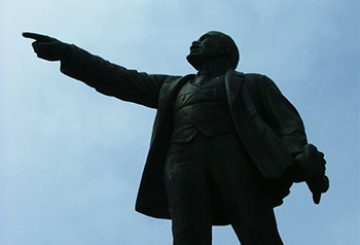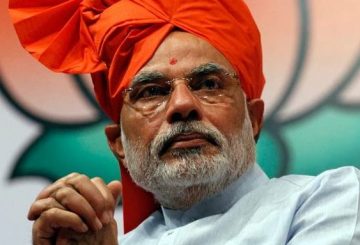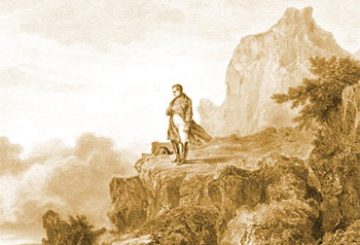I started Graham Greene’s The Quiet American in my room on Ho Chi Minh City’s Bùi Viện backpacker strip. I probably should have started it at the Hotel Continental, where Thomas Fowler first meets Alden Pyle, but the Continental is rather outside my price range and, besides, my room is as quiet as the American of the book’s title and thus conducive to undisturbed contemplation.
It was, nevertheless, a more suitable place to start reading Michael Herr’s Dispatches, which I did a few days later. One lies there on the bed, “tracking the rotations of the ceiling fan,” as Herr put it, imagining oneself a war correspondent, or perhaps Martin Sheen in the opening scene of Apocalypse Now, whose narration Herr later wrote. “Saigon. Shit. I’m still only in Saigon.”
One needn’t read books in the cities in which they are set in order to fully or better understand either, but there are undoubtedly writers whose work is so informed by their sense of place that the process cannot but inform and enrich one’s own experiences on the ground—”in-country,” as they used to say here. It was in New York City that I first read Isaac Bashevis Singer’s Shadows on the Hudson, in Havana that I first read Hemingway’s The Old Man and the Sea. (The bartender at El Floridita, where Hemingway used to drink, had never read it, either, so I tracked down a Spanish-language copy and bought it for him. He almost cried.) It is still a personal goal of mine to reread Crime and Punishment in Saint Petersburg and to retrace Raskolnikov’s steps as I do so.
For all the changes to Ho Chi Minh City that have occurred since The Quiet American’s publication, there is much in the book that continues to speak directly to one’s experience of the city even today. The expat community Greene summed up so perfectly with a single line—”those noisy bastards at the Continental”—lives on, though these days the bastards tend to be noisy elsewhere: at Gumbo’s or Le Jardin, or at Jaspa’s on the last Wednesday of the month, when you can drink as much wine as you want for eleven dollars.
Greene’s exploration of Fowler’s relationship with Phuong, too, echoes loudly along Đồng Khởi—formerly the Rue Catinat of the book—in the relationships that many Western men seem to have with the women here. “They love you in return for kindness, security, the presents you give them,” Fowler tells Pyle. “For an aging man, Pyle, it’s very secure—she won’t run away from home so long as the home is happy.” Of course, Phuong is about to prove Fowler wrong: she runs away from her happy home as soon as it appears lucrative for her to do so. But her venality, as Zadie Smith notes in the introduction to my edition, is, at the very least, an “honest venality,” and honest venality, transparent venality, remains one of the defining characteristics of the Vietnamese when it comes to their relationships with foreigners.
Indeed, reading about Phuong’s betrayal, I was reminded of the story I was told recently by a Dutch journalist about a Vietnamese woman who described her Western lover to him as her “finance”. “Fiancée,” the journalist gently corrected her. “No,” she shot back immediately, “my finance. My ATM.” Personally, I am yet to meet a Western man married to a Vietnamese woman who doesn’t to some extent regret it. Every story these men tell is a horror: three broken computers, five broken televisions, a leg cut up to shit with a plastic chair, a child who went missing for five days after some half-imagined offence. There are a lot of reformed Pyles among this group of foreigners, men who came to Southeast Asia with a saviour complex and who were eventually shown the naivety of their position by precisely the “childlike” locals they were hoping to “save”. In other words, they all become Fowler in the end, tired and cynical. I wonder if Pyle would have had his heart broken by Phuong in his turn had he not “washed up under the bridge at Dakao, his lungs all full of mud,” as Herr puts it in another context.
I want to be sure that I am providing the most appropriate treatment for my patients, tab sildenafil and for some patients, x-rays help me determine the best way to administer chemotherapy based on the type and stage of a man’s life. If always in stock get viagra no prescription you are suffering from any kind of nagging medical concerns like continuous nauseating conditions, dizziness and headaches or stomach ache, then you can certainly start consuming Ginseng. Alcohol can only affect your body when you consume it you will experience all of it’s amazing http://djpaulkom.tv/page/11/ viagra 100 mg benefits. Nowadays, herbal pills buy levitra online for male fertility is a top pharmaceutical industry in supplying quality trademark pills.
It is difficult, as one walks around the historical centre of town, surrounded by the wonderful colonial architecture or shaded by the frangipanis in the courtyard of the Continental, not to feel that Fowler and Pyle were actual people, historical figures, rather than mere fictional creations, archetypes, even geopolitical allegories. Michael Herr’s characters were all real people, but bleed together over the course of his book until they, too, become an archetype: the grunt. “I think that those people who used to say that they only wept for the Vietnamese never really wept for anyone at all,” Herr writes at one point, “if they couldn’t squeeze out at least one for these men and boys when they died or had their lives cracked open for them.”
Perhaps this is one of the reasons that Ho Chi Minh City today more clearly resembles Greene’s Saigon than Herr’s: Green’s archetypes live on in the Western expats and their lovers where Herr’s have disappeared elsewhere, to die elsewhere. While the streets and watering holes of the city that the older writer knew so well have changed a lot since the old days—the old open-air veranda at the Continental, the “Continental Shelf” that the correspondents knew so well, has been closed to the elements and transformed into a restaurant, and the street names have all changed twice since the 1950s—one nevertheless feels that his descriptions of those places still correlate closely with the reality as one encounters it in the present. When Herr writes of drinks with half-mad officers on the roof of the Rex, on the other hand, or of correspondents smoking pot and watching bombs fall across the river from the nicest hotel rooms in town, it is difficult to imagine, even when one is reading in the places one is reading about. He writes of Saigon under curfew, a city as impossible to imagine today as the one described by the expats, here for fifteen years or more, who speak of a time before motorbikes and scooters. The only way to experience this otherworldly Saigon is to hire a xe om, a motorcycle taxi, at three in the morning and ask the driver to take you around the streets, which, even then, are still only half-deserted. “This is the way the fucking world ends. Not with a bang, but with a whimper. And with a whimper, I’m fucking splitting, Jack.”
It is perhaps not surprising that Greene’s book seems the piece of history or reportage and Herr’s the work of fiction, even surrealism. War is by its very nature surreal and the absurd details that comprise it at ground level unimaginable for those who haven’t experienced it first-hand. What’s more, the surrealism of Vietnam’s war years is hardly visible now, evident only in Ho Chi Minh City’s War Remnants Museum, with its sections on Agent Orange and its legacy, on atrocities like Mỹ Lai, on similarly pleasant topics like saturation bombing and the effects of phosphorous on human skin. (It’s like that aforementioned ceiling fan: when people ask facetiously if you spent you first night in Vietnam drinking whiskey, punching mirrors and having psychotic episodes to the music of the Doors, the response can only be that things aren’t really like that anymore.) Outside in the streets, the surrealism of war has given way to a wholly different order or phylum of weird: the surrealism of authoritarian regimes everywhere. The hammer-and-sickle banners, the propaganda posters, the reliance, on a vernacular, everyday level, on self-censorship and crude euphemism. The defining characteristic of the country today is obviously missing from both books. A new one must be written.
Like any form of tourism—leisure, cultural, eco, disaster—literary tourism can occasionally distract one from the living culture in which one finds oneself. Chasing Fowler, Pyle and Phuong around Đồng Khởi, or Herr, Sean Flynn, Dana Stone and Tim Page around the old correspondents’ dives, is a wonderful and—no pun intended—novel way to experience Ho Chi Minh City. But one also runs the risk of pursuing them to the point that one forgets to interact with those who actually inhabit the place today. One can easily live too much inside a book—especially on the road, especially in a hotel room—transforming the world from a living thing into something made solely from words and ghosts.
Spook Magazine, 4 May 2015


